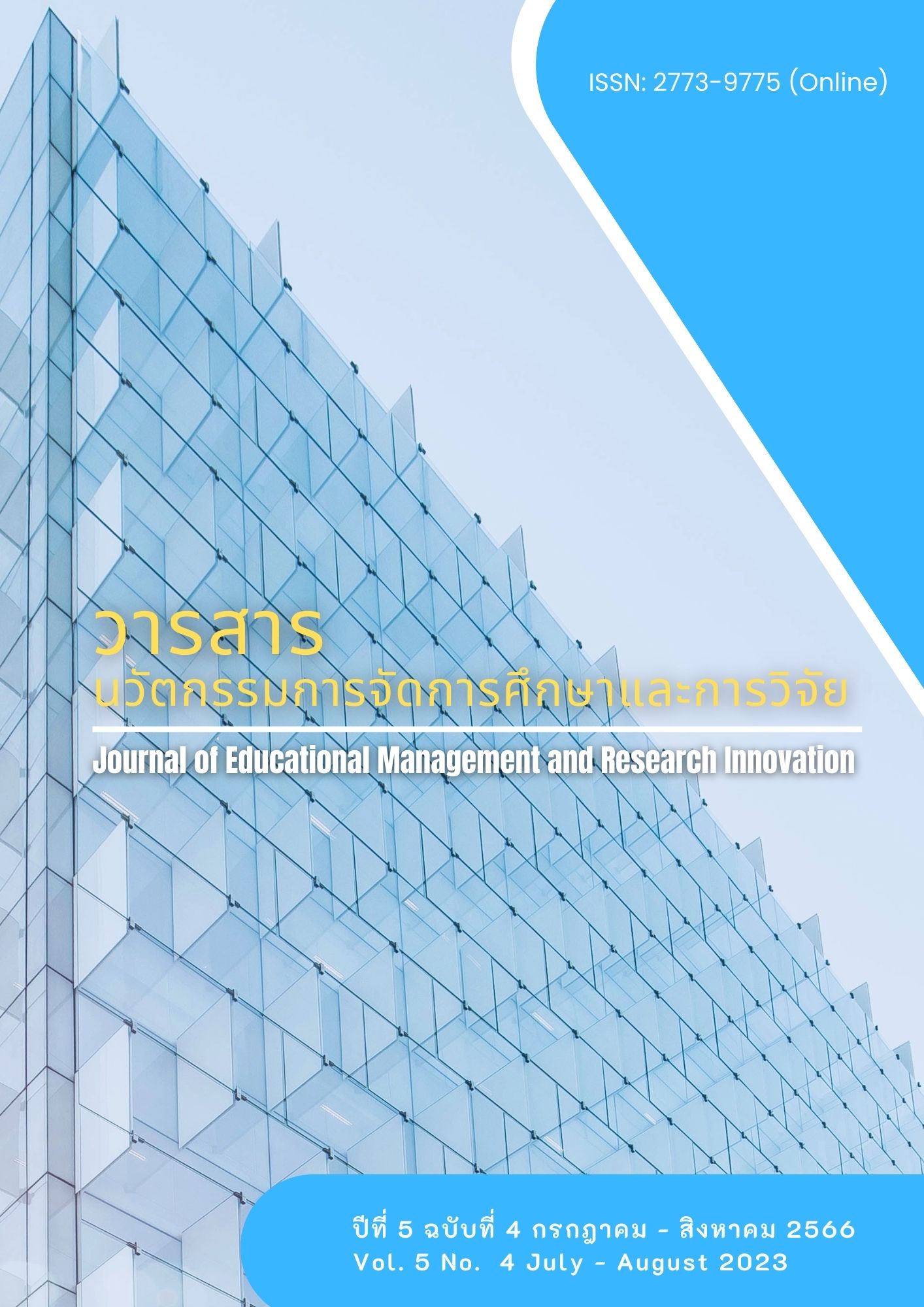ปัจจัยที่มีอิทธิพลต่อการตัดสินใจและความสนใจในการเลือกศึกษาในสาขาวิชาการบัญชีของนักศึกษาระดับอุดมศึกษา
Main Article Content
บทคัดย่อ
บทความนี้มีวัตถุประสงค์ เพื่อระบุปัจจัยที่มีอิทธิพลต่อการตัดสินใจและความสนใจในการเลือกศึกษาสาขาการบัญชีในนักศึกษาระดับอุดมศึกษา การวิจัยเป็นการวิจัยเชิงปริมาณ โดยใช้แนวคิดของการวิเคราะห์ด้วยสมการถดถอยโลจิสติกส์เป็นกรอบการวิจัย พื้นที่วิจัยคือนักศึกษาสาขาการบัญชีชั้นปีที่ 1 ที่สอบคัดเลือกเข้าศึกษาในสถาบันอุดมศึกษาภาครัฐและเอกชน จำนวน 456 คน โดยใช้วิธีการสุ่มตัวอย่างแบบแบ่งชั้นภูมิเพื่อเก็บข้อมูล กลุ่มตัวอย่างเป้าหมายคือนักศึกษาสาขา
การบัญชีชั้นปีที่ 1 ที่สอบคัดเลือกเข้าศึกษาในสถาบันอุดมศึกษาภาครัฐและเอกชน จำนวน 456 คน โดยใช้วิธีคัดเลือกแบบสุ่มตัวอย่างแบบแบ่งชั้นภูมิโดยเครื่องมือที่ใช้ในการวิจัยมี 2 ชนิด คือ 1) แบบสอบถามสุ่มตัวอย่างแบบแบ่งชั้นภูมิ 2) การวิเคราะห์ด้วยสมการถดถอยโลจิสติกส์
ผลการวิจัย พบว่าปัจจัยที่ส่งผลต่ออิทธิพลด้านการเลือกเรียนสาขาการบัญชีของนักศึกษาชั้นปีที่ 1 ประกอบด้วยบรรทัดฐานอ้างอิงจากกลุ่มอ้างอิง เช่น ครอบครัว ครูแนะแนว คนรอบข้าง โอกาสในการเลือกอาชีพ ความต้องการเรียนสาขาการบัญชี สาขาวิชาที่จบการศึกษา การเคยศึกษาวิชาบัญชีมาก่อน และการที่ผู้ปกครองรับราชการ
ข้อค้นพบจากงานวิจัยนี้คือการระบุปัจจัยที่มีอิทธิพลต่อการตัดสินใจและความสนใจในการเลือกศึกษาสาขาการบัญชีของนักศึกษาชั้นปีที่ 1 ที่สอบคัดเลือกเข้าศึกษาในสถาบันอุดมศึกษาภาครัฐและเอกชน โดยปัจจัยดังกล่าวสามารถนำไปใช้ในการกำหนดแนวทางหรือกลยุทธ์ของมหาวิทยาลัยและหน่วยงานที่เกี่ยวข้องเพื่อเพิ่มจำนวนนักศึกษาที่เลือกศึกษาสาขาการบัญชีและลดปัญหาการขาดแคลนในสาขาวิชาการบัญชี
Article Details

อนุญาตภายใต้เงื่อนไข Creative Commons Attribution-NonCommercial-NoDerivatives 4.0 International License.
เอกสารอ้างอิง
กรมพัฒนาธุรกิจการค้า (2565).ข้อมูลการทะเบียนนิติบุคคล พ.ศ. 2564-2565. สืบค้นจาก, https://data.go.th/th/dataset/dbd_2565.
วัทธยา พรพิพัฒน์กุล (2563). นักบัญชีบริหารในยุคดิจิทัล. สืบค้นจาก, https://www.tfac.or.th/Article/ Detail/126283
สำนักงานกรมอาชีวศึกษา. (2564). กลุ่มเทคโนโลยีสารสนเทศเพื่อการบริหารงานอาชีวศึกษา ศูนย์เทคโนโลยีสารสนเทศและกำลังคนอาชีวศึกษา. สืบค้น จาก, http://pvis.vec.go.th
ศิริวรรณ เสรีรัตน์ และศุภร เสรีรัตน์. (2552). การบริหารการตลาดยุคใหม่ (ฉบับปรับปรุงใหม่). กรุงเทพฯ: ธรรมสาร.
Ajzen, I. (1991). The Theory of Planned Behavior. Organizational Behavior & Human Decision Processes, 50(2), 179-212.
Allen, M. J. (2004). Assessing Academic Programs in Higher Education. San Francisco: Jossey-Bass.
Barhamzaid, Z., & Alleyne, A. (2018). Factors Affecting Student Performance in the First Accounting Course. Diploma Program under Political Conflict, 9. 144-154.
Bekoe, R., Owusu, G., Ofori, C., Essel A, Anthony. and Welbeck, E., (2018). Attitudes Towards Accounting and Intention to Major in Accounting: A Logistic Regression Analysis. Journal of Accounting in Emerging Economies, 8(4),459-475.
Dalci, L., Arasli, H., Tumer, M., & Baradarani, S. (2013). Factors That Influence Iranian Students’ Decision to Choose Accounting Major. Journal of Accounting in Emerging Economies, 3(2), 145-163.
David, C. G. (2015). A Happy Pocket Full of Money, Expanded Study Edition: Infinite Wealth and Abundance in the Here and Now. Massachusetts: Hampton Roads Publishing.
Denvers, J., Wiley, S. L., C. W., Hair, J. F., & McDaniel, C. (2000). Marketing. Ohio: South-Western College Publishing.
Fishbein, M., & Ajzen, I. (1975). Belief, Attitude, Intention and Behavior: An Introduction to Theory and Research. Massachusetts: Addison-Wesley.
Hendro, H., & Keni, K. (2020). eWOM dan Trust sebagai Prediktor terhadap Purchase Intention: Brand Image sebagai Variabel Mediasi. Jurnal Komunikasi, 12(2), 298–310.
Hermanson, D., Houston, R., Stefaniak, C., and Wilkins, A. (2016). The Work Environment in Large Audit Firms: Current Perceptions and Possible Improvements. Current Issues in Auditing, 10(2), A38–A61.
Keneley, M., & Jackling, B. (2009). Influences on the Supply of Accounting Graduates in Australia: A Focus on International Students. Accounting and Finance, 49(1), 141-159.
Lowe, D., & Simons, K. (2010). Factors Influencing Choice of Business Majors-Some Additional Evidence: A Research Note. Accounting Education: An International Journal, 6(1), 39-45.
Mauldin, S., and Crain, J., & Mounce, P., (2000). The Accounting Principles Instructor's Influence on Students' Decision to Major in Accounting. Journal of Education for Business. 75(3). 142-148.
Sandra, F., Tony, D., & Margot, N. (1995). A Theory of Reasoned Action Model of the Chartered Accountant Career Choice. Journal of Accounting Education, 13(1), 1-19.
Tan, L., & Laswad, F. (2006). Students' Beliefs, Attitudes and Intentions to Major in Accounting. Accounting Education, 15(2), 167-187.
Schafer, B., Cleaveland, C., & Schafer, J. (2020). Stakeholder Perceptions of the Value of Accounting Student Organizations. Journal of Accounting Education, 50, 100656.


